Hi Everyone
In my last blog post, I told how I was filmed for a video that was to be presented at Speculate, the Victorian Speculative Writers Festival, which is being held next month. I also mentioned that I would expand on my answers to the questions asked of all the participants in the filming sessions. There were three questions in total:
- What science fiction/fantasy first made an impression on you?
- Why do you continue to write science fiction/fantasy?
The third was a three-part question:
- Where do you think science fiction/fantasy is heading?
- Where do you hope it would go?
- Where you see your contribution to the genre(s) and where you think that fits, in regards to the direction or as a response to it?
 |
| Image Source |
This blog post will explore the first question. My original brief answer centred on the books Lord of Light and The Lord of the Rings. However, the situation is much more complicated.
 |
| Image Source |
My earliest memory of anything speculative might possibly be my watching the original Twilight Zone, The Outer Limits, and Doctor Who. Later, of course, came the original (and best!) Star Trek. At some point, there was also the Superman TV show, My Favourite Martian, Lost in Space, Time Tunnel, Stingray, Thunderbirds, and many others. In all these stories and characters I was exposed to the excitement of SF ideas, the fear in horror, the fun in fantasy, and the mysteries of the fantastic. One vivid memory is an Outer Limits episode (I think) telling the story of a father rescuing his son from an alternative universe and the dread that the portal would close before the father was pulled back through by a long rope.
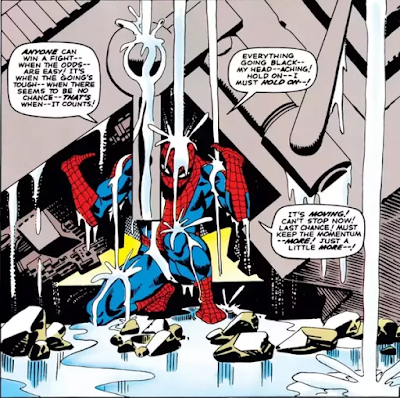 |
| One of my favourite scenes (Source) |
From an early age, even before we got a TV (I’m revealing my age here), I was reading books. I was an avid Biggles fan and I read the usual (for that time) boy’s adventure books like Robin Hood (my first ‘real book’, all 300+ pages), Treasure Island and Black Arrow. These led to the scientific romances of Jules Verne and H G Wells, such as 20,000 Leagues Under the Sea and Time Machine. I was also a keen comic book reader, my favourite (which it still is) being Spider-Man, though I also liked the Phantom, Green Lantern, and Batman.
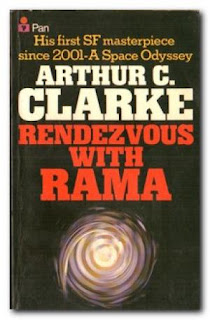 |
| Image Source |
After Verne and Wells, I moved onto such Golden Age (and earlier) SF writers as Isaac Asimov, Arthur C Clark, Robert Heinlein, A E van Vogt, and E E ‘Doc’ Smith. I also read Hal Clement’s Mission of Gravity, which was my father’s favourite book. The next generation of SF writers I read included Poul Anderson, James Blish, Ray Bradbury, Gordon R Dickson, Frank Herbert, and Ursula Le Guin. And there were those writers of dystopia, Aldous Huxley and George Orwell, and others such as Fred Hoyle and John Wyndham. At some point I read Alan Garner’s The Weirdstone of Brisingamen, which stayed in the back of my mind for many years and then re-surfaced when a friend took me to Alderley Edge, one of the settings in the novel. I then started reading everything Garner ever wrote, fiction and non-fiction and thought of his work as a type of mythic realism.
 |
| Image Source |
The obvious writer in the fantasy genre that I read and re-read was J R R Tolkien, but there were many others, including Stephen Donaldson, Michael Moorcock, and Roger Zelazny. Weird tales is a sub-genre of fantasy and I read many of the major contributors to that field. In the heroic fantasy (or sword and sorcery) field there was Robert Howard (the creator of Conan), Fritz Leiber, E C Tubb, and Karl Edward Wagner (creator of Kane, the immortal swordsman). In the horror genre, I moved from Edgar Allan Poe to H P Lovecraft and Clark Ashton Smith, the cosmic and mystical environment of their stories more interesting to me than the later more realistic fare of Stephen King and his many imitators.
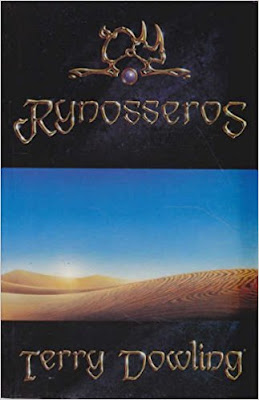 |
| Image Source |
If I were to give my top ten SF texts and/or authors that inspired and influenced me at different times over the years, they would be, in no particular order of merit
- J R R Tolkien (The Lord of the Rings)
- Roger Zelazny (Lord of Light and his other mythopoeic novels; his short stories, too, especially ‘24 Views of Mt. Fuji, by Hokusai’ and ‘Home is the Hangman’)
- Alan Garner
- Michael Moorcock (the Elric stories)
- Karl Edward Wagner (Kane)
- Frank Herbert (Dune)
- Clark Ashton Smith (his short fiction and his poetry)
- A E van Vogt
- Terry Dowling (his Rynoserros stories)
- Robert Holdstock
- Robert Howard (his Conan and Solomon Kane stories)
I know, I know, that’s eleven (which at least is a prime number). It’s hard to narrow the field down, and on another day the list would be different.
 |
| Image Source |
As for the visual medium, my top movie would be 2001: A Space Odyssey. I remember coming out of the theatre as a teenager and the friends and family I had seen the film with were shaking their heads and saying they didn’t understand what was going on. I, however, was totally stunned by the experience and, although I couldn’t articulate my feelings about and insight into the film, I understood intuitively what it was doing, especially the last sequence.
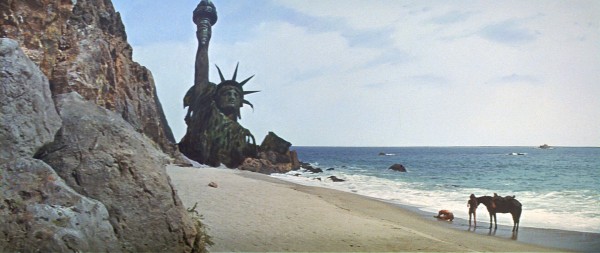 |
| ‘You Maniacs! You blew it up!’ (Image Source) |
Other films during those early to middling years (50s, 60s, 70s, early 80s) that excited me, intrigued me, terrified me, thrilled me, entertained me, in no particular order again, include Blade Runner, Star Wars, Silent Running, Dark Star, Day of the Triffids, Forbidden Planet, Planet of the Apes (the Charlton Heston version, with its famous last scene revelation), Invasion of the Body Snatchers (the original one), The Day the Earth Stood Still (again, the original), Alien, On the Beach, The Incredible Shrinking Man, The Creature from the Black Lagoon, Them!. This list is not exhaustive and, as I said above, on another day I might remember others more pertinent.
 |
| Image Source |
Obviously, much of my reading and viewing in those early years was of the fantastic in its various guises. I was looking for that sense of wonder for which science fiction especially is well suited, that emotional breathlessness and intellectual stimulation this literature of ideas excites through its exploration of the ramifications of technology (hard and soft) on the human. In my fantasy reading, there was also a desire for hidden realms, for hidden knowledge.
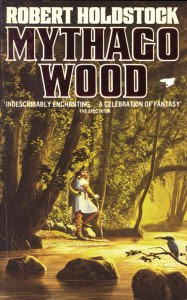 |
| Image Source |
In the end, however, what speculative fiction, most especially mythic fantasy, gave me and still gives me, though I wasn’t conscious of this until recently, was a sense of the reality of other worlds, an opening to the wonder in all worlds, and how these relate to what I am more and more thinking of calling Deep Wonder, work that looks at the Wonder underneath and interwoven through what we normally term ‘ordinary reality’.
For further information about Speculate, which will be held at the Gasworks Arts Park, 21 Graham St, Albert Park VIC 3206 on April 28, 2018, visit the website (www.SpecFic.com.au) and join the mailing list.
I hope you enjoyed this exploration of a sampling of my speculative fiction influences. (Some of the above material first appeared in the exegesis for my PhD.)
As always, I welcome your comments.
Best Wishes
Earl

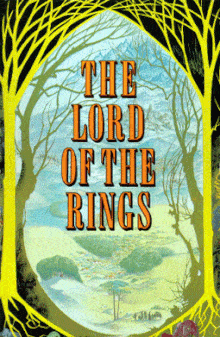
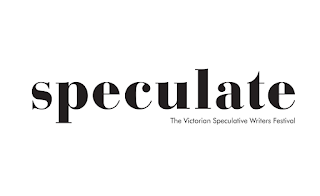
I loved Thunderbirds! I used to hide behind the couch from Darleks in Dr Who!
Thanks, Earl, I found this fascinating! And glad that our visit to Alderley Edge and Alan Garner a couple of years ago sent you back to his books, which I love. I was moved and awe-inspired recently hearing of Ursula LeGuin's death: I loved her Earthsea books so much and still do – also The Lathe of Heaven – there's a post about them on my blog at http://www.grevel.co.uk – Other writers who've made a big impression on me include Lary Niven, whose Ringworld has really stayed with me for some reason – maybe just the concept but also some characters, like the Puppeteers and Hlallalloprillalar – was that how she spelled her name? – a favourite subject for fantasy at one time! – and I read a lot of Philip Jose Farmer, but he seemed gradually to get less and less good, degenerating into silliness, so I stopped reading him. And if I had to choose one favourite short story it would be Robert A. Heinlein's 'By His Bootstraps' – still, I think, one of the most fascinating stories ever written.
Forbidden Planet, the first "Robbie the Robot", Biggles, Pioneer Air Fighter and the Phantom, all favourites. Wow, the original "The Day the Earth stood still, a look into the future that scared us all alao Earth vs the Flying Saucers.i have a couple of DVD,s. We should have an old sci-fi moviethon,all the best Bill
Hi Liz, I wasn't that scared of the Daleks, though some episodes certainly were a little dark. As for the Thunderbirds, I just loved the whole idea of a rich, benevolent group of high-tec do-gooders. Cheers, Earl
Hi Grevel, Thanks for the visit to the Edge, one of my fondest memories of my trip to Britain that time, other memories of course being our megalithic wanderings during the next trip. I, too, was saddened by Ursula Le Guin's passing. I loved the Earthsea books, The Lathe of Heaven, The Dispossessed, The Left Hand of Darkness (my favourite),and her short stories in The WInd's Four Quarters. (I'll check out your blog when I get a chance–I just have. ENjoy reading her other works!) I remember enjoying RIngworld when I read it, but must admit it hasn't stayed with me. Not sure why. As for Farmer, I was quite taken with the first of his Riverworld books, but I didn't stay with the series. A quality issue, possibly, as it was with Herbert's Dune books after the first couple. My current favourite SF short story of all time would be Roger Zelazny's ‘24 Views of Mt. Fuji, by Hokusai’, which I mentioned in the blog. I should go back and read 'By His Bootstraps' and Heinlein's other famous time travel story 'All You Zombies'. All the best, Earl
Hi Bill, I agree. We should have a marathon of all those 50s and 60s SF movies. Have you got any of the old Phantom comics, etc. Or Biggles books (I still have mine). Cheers, Earl